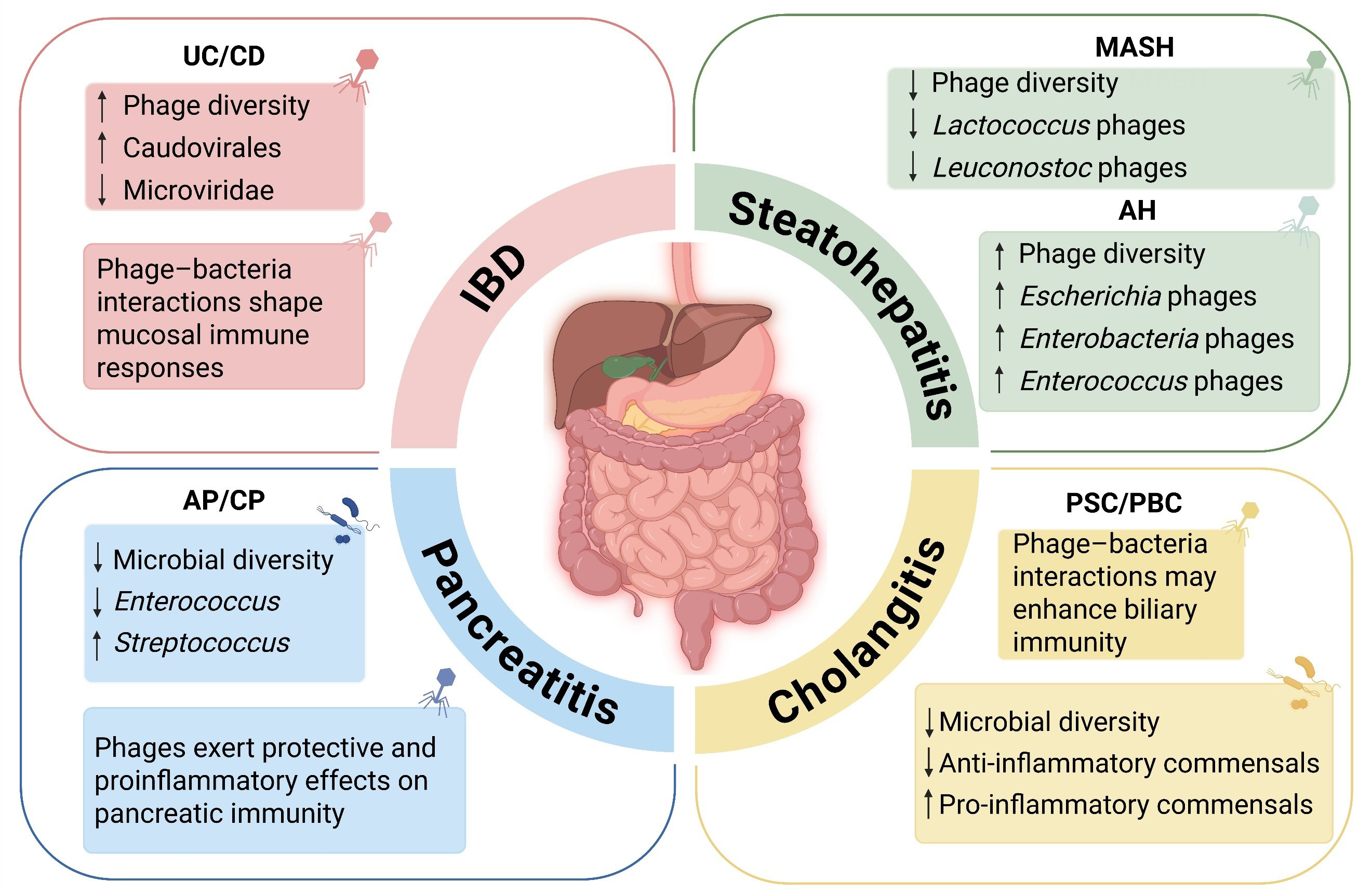fig1
Figure 1. Disease-specific alterations and immunomodulatory roles of gut bacteriophages in inflammatory gastrointestinal diseases. In IBD, an increased abundance of Caudovirales and decreased Microviridae are observed, alongside enhanced mucosal immune engagement. In MASH, reduced Lactococcus and Leuconostoc phages correlate with liver fibrosis severity. In AH, phages targeting pathobionts such as Escherichia and Enterococcus are enriched. Although direct virome evidence remains limited in PSC and PBC, prominent microbial dysbiosis and immune perturbations suggest potential contributions of phage-bacteria interactions to biliary inflammation. In both acute and chronic pancreatitis, bacteriophages modulate immune responses bidirectionally by influencing bacterial lysis and TLR9 signaling. Created with BioRender.com. Data summarized from published studies[49-52,61-65,90,91]. UC: Ulcerative colitis; CD: Crohn’s disease; IBD: inflammatory bowel disease; MASH: metabolic dysfunction-associated steatohepatitis; AH: alcoholic hepatitis; PSC: primary sclerosing cholangitis; PBC: primary biliary cholangitis; AP/CP: acute/chronic pancreatitis; TLR9: toll-like receptor 9.










